Everything to know about travelling to Fiji in Covid
Sunday, February 27, 2022BULA!!
Fiji was never really on our bucket list. But when it opened its borders to Australian tourists with not many other options for international travel for us, we jumped at the opportunity.
Considering the island nation is perfect for relaxing outdoors with minimal interactions with large crowds and with their tourism Care Fiji commitment -- the chances of catching COVID were relatively low.
What's Care Fiji?
It is Fiji's WHO approved standard of best practice health and safety measures for travelling in a post COVID world. This translates into measures like only vaccinated staff working in tourism and enhanced cleaning and contact tracing.
However unlike pre-COVID, the requirements of getting into Fiji were no longer as easy and straightforward. Below is what we needed to get sorted before we could have a relaxing trip:
- PCR test up to 3 days of flying to Fiji which was later changed to 48 hours.
- Booking first 3 day accommodation at a Care Fiji resort, and this paid booking to be showed at the airport.
- Booking of a Care Fiji Taxi from airport to resort.
- Health insurance covering COVID, the only appropriate one at the time was Covermore. This is essential as Fiji does not have health care facilities equivalent to Australia and you may need to be flown out. Hence the insurance gets checked at the airport.
- Once in Fiji we were limited to our hotel for first 2 days after which we had to do a RAT test. Upon a negative result, we were free to do whatever.
- Download the CareFiji app on your phone to allow check-in, check out at locations in Fiji.
- PCR test to return to Australia.
While all of it sounded very daunting at first, using a travel agent made things a lot easier. I would even say it's mandatory to get an agent considering it was impossible to find all the above information easily. I have never used a travel agent before but given the circumstances, with rules changing rapidly, having a travel agent was very helpful and advisable. Without them, it would have been impossible to know that even my taxi from the airport to the hotel needs to be Care Fiji.
Thankfully for us, all of the above went quite smoothly and it was not long before we were in Fiji.
ACCOMODATION
The largest island of Fiji is called Viti Levu and it is home to cities like Suva and Nadi, and this is where you land. However the country is comprised of some 333 islands, many still uninhabited, and 500 islets. The most ideal way to see the country is to divide your time around Viti Levu and one of the smaller islands. But it's important to note that most tourists who are wanting to stay on Viti Levu actually stay on Denarau Island.
Denarau is an exclusive manmade island offering international resort chains, golf clubs, and restaurants making it a tourist hotspot and its an easy 20 min taxi drive from Nadi international airport. Port Denarau Marina is also where all the day trips depart for other islands. All this makes Denarau a very convenient location to stay in. While this is the most popular place to stay in when being close to Viti Levu, there are some other options such as the Coral Coast which is a bit further away. Ultimately, which resort you opt for depends on what you want to do.
Having landed in Nadi and being required to stay in the resort's boundaries for the first 48 hours, we decided to stay the first two days of our trip in Radisson Blu in Denarau.
However, If you're going to Fiji, you'll be doing this stunning country a disservice by basing yourself only on Viti Levu or Denarau for the entire time. While Denarau is very nice its not where you see the picture perfect white sandy beaches. With 333 islands forming this gorgeous country, a stay at one of its many island resorts is a must. If you absolutely can't then you can always opt for a day trip however waking up to the sound of the sea really does make the trip special.
When planning our trip we found out two main group of islands popular with tourists - the Mamanucas and the Yasawas. But it was impossible to find a resort available. We assumed they were all booked out as we started planning not long before flying out. Our travel agent suggested the Treasure Island resort, which while not a 5 star, luxury resort was still very popular, offering a good time. Another advantage was that its one of the only resorts owned completely by local Fijian people. This convinced us and we jumped at the booking.
Its one of the closer islands to Port Denarau , yet took 30 mins of a very bumpy water taxi ride. I was ready to throw up but arrived just in time and what awaited us looked nothing short of heaven. Pure white sand, crystal clear water, staff ready to welcome us off the boat with their guitar and fresh coconut water.
Radisson Blu Resort Fiji Denarau Island: Our suite at this lovely hotel was very nice and we had no complaints in regards to cleanliness. They also handled our RAT test smoothly with the test done on premises. But despite all of this, it became evident very quickly that it's not the same bustling resort it was before the pandemic decimated the tourism industry.
Out of the 5 restaurants on its premises, 2 were closed. Which wouldn't be a big deal as the best part about Denarau resorts is you can easily go resort hopping since they're connected by the beach. But on one day when we attempted to do it, we realised the resorts on one of the sides, Sheraton followed by The Westin, were both shut for renovation, blocking the path through the beach. This is why we were struggling to find accomodation! Nonetheless, we decided to walk up through the main part to the Sofitel, only to be told that with Omicron becoming a concern really fast, they're not allowing walk ins anymore. Upon enquiry, Radisson was doing the same which meant our dining options became quite limited. Dejected, but not ready to give up, we did walk over to the Wyndham one of the night as it was the resort connected to Radisson on the left side.
With the misfortune aside, there was plenty that we loved about our stay at Radisson:
1. Ease of booking tours - the entrance of Radisson has a tour company sitting there who will organise all your tours for you. The tours need to be Care Fiji certified which was very hard to figure out online. But the lovely ladies sorted it for us so don't stress over tours too much when planning your trip.
2. The massage and spa was out of this world - Not only was it relaxing, I woke up to find they had braided my hair! I was worried for a second there about cultural appropriation but found out its a tradition in Fiji.
3. The pool and the swim up bar was amazing. We spent a lot of time sipping on unlimited Pina coladas from their swim up bar.
4. Breakfast buffet: While I've had better hotel breakfast buffets in the past, one thing I liked was that everyday they had 1-2 traditional Fijian dish for you to try. While we went to a Fijian restaurant on our trip (more on it later), it was good to try things we couldn't find such as the lolo buns and some of the curries like dalo.
5. Walking over to Wyndham to have dinner at The Beach Shack - This restaurant piqued my interest due to their Cassava gnocchi on the menu! Non-Fijian food made from Fijian produce?! Sign me up. It was great! The dessert platter was also a very good deal and we loved everything on it except the more traditional Fijian dessert of Plantains in coconut or Vudi Vakasoso.
While staying in Radisson, we ventured around a fair bit and below are all what we got upto!
Dining in Denarau
While we indulged in breakfast buffets everyday at our resort, we did venture out for a few meals.
Nadina - If you're looking to try authentic Fijian food, Nadina is your best and one of the only options. Conveniently located in Port Denarau, its so easy to get to, you shouldn't miss out! While our resort, and I assume others, do make some Fijian dishes here or there, and Indian food is very popular and easy to find, the traditional Fijian food is much harder to find.
We started with Cassava and Dalo chips, both root vegetables very common in local cooking and Cream of Rourou, which was a creamy soup made from taro leaves. All vegetables new to us and we liked them all. For mains, as a vegetarian I ordered their plate of Rourou balls which came with a side of baingan valo (grilled eggplant in coconut cream), Ota Vaka Miti (Fijian fern salad) and more steamed cassava and dalo. Despite all the flavours being very new to me, the food did taste good, even though with all the coconut milk, it got too heavy soon and I could only eat 3 of the 6 balls in the plate. My husband ordered one of their fish and despite not being a seafood person, loved it. We also ordered some of their fresh fruit smoothies.
Overall the food was great and I'm glad I got to experience all the new flavours and produce.
Indigo - As an Indian, I try to steer clear of Indian restaurants when travelling in other countries. But Fiji has a significant Indian population who have also contributed to making the country what it is today. So trying Indian food is also a must in Fiji. Indians were first introduced in Fiji in 1880s by the Britishers to work in their cane plantations. These immigrants were separated from their families and forced into indentured labour. Since then the Indian population continued to grow till 1940 when they formed the majority overtaking the Indigenous population. It was only later in the 1980s and 1990s when the situation reversed. As such Indian culture is incorporated into the fabric of Fijian society.
All of this is to say, you must try Indian food and if staying in Denarau, Indigo at the port is a great option. We ordered a curry, and some Indo-Chinese food as well as roti and naans. The food was great but I found it interesting how the naan was different to what I'm used to.
The Beach Shack at the Wyndham - This restaurant is located in the Wyndham resort which as I mentioned was right next to our resort on the left side. Since they're connected by the beach, we hopped in one night to grab dinner. The cassava gnocchi was great and so were all the desserts except the plantains. The restaurant had live music and was right on the beach making it the perfect spot for what was a beautiful evening.
Hot Bread Kitchen - This was an unassuming bakery we saw everyday at Port Denarau. But we soon found out that its a very popular chain across Fiji and they serve Purini, a Fijian coconut steamed pudding. Unfortunately, they used to be sold out everyday until our last day when we were going to the airport and wanted some snacks! Lady luck struck and thank god it did, the purini was delicious! It is moist and just a little sweet, almost like eating a chocolate cake.
Lolo Buns - or Fijian coconut buns are soft, sweet and very popular with the locals. Although I never saw them in any restaurants in Denarau, we were lucky enough that we saw these as part of our breakfast buffet one day at Radisson. They just look like you average buns but taste so good. definitely try or if you can't why not cook them at home!
Cassava Cake - We grabbed this at a bakery from the airport on our hunt for some final snacks. The sweet is made from grated cassava, coconut and condensed milk. It tastes more like a cassava coconut slice than a cake and is quite nice! I'd heard about it previously but once again, never saw it in the shops so as soon as I spotted it at the airport bakery, I knew I had to grab it!
This is it for our foodie adventures but food is not all we did while in Denarau.
We didn't spend our entire time in Denarau and in fact did venture out to a city and a village.
Lautoka - Fiji's second largest city and pitched to us as way nicer that Nadi by all the locals such as the resort staff, taxi drivers etc, we were excited to see Lautoka! Having only seen the touristy Denarau , we wanted to know what Fijian cities are like. With Suva being too far, and Nadi being tourist hotspot, Lautoka was the best option.
The 40 min drive from Denarau to Lautoka takes you through serene greenery with mountains in the background, some villages and small towns and the famous sugar mill littering the journey. This sugar mill was built in the 19th century and still employs about a thousand people.
Reaching Lautoka was not hard, we just grabbed a taxi from Port Denarau that took us to Lautoka and was happy to wait and then drive us back. Unfortunately though, instead of meeting a bustling city we faced a dead one. Since it was still Christmas time, most shops were closed and not many people were roaming around. Nonetheless, we walked around and managed to spot Indian shops with saris and it took me back home. Soon enough we saw a lot of stray dogs, again reminiscent of India but they were a little less mellow. Fights between the vicious looking stray dogs was enough to scare us and we headed back to our taxi and told him to take us back to our resort.
The drive was nice but the whole trip cost us a shocking 180 FJD. We should have enquired the cost of the trip, which by the way was fixed and it wasn't a dodgy taxi driver ripping us off, but we never thought it'll be that expensive. While it was nice to get an idea of what a Fiji city of 50,000 people looks like, we still felt it was a waste of money and time. And lesson learnt: Always ask the price before sitting in the taxi!
Sigatoka Village tour - Fiji is a village-based country with only a handful of bigger cities and some of the villages have retained their simple way of life by relying on farming and fishing while putting together money for their kids and their education. Village tours allow tourists like us to get a taste of this life and we loved it. We opted to go the Sigatoka river safari that was closer to the Coral coast than Denarau. A bus picked us up from our resort and took us to the Sigatoka town where people from different resorts congregated to pick up complimentary water bottles and the sulus for women to don in the village. From here we got taken to the jetboat for our tour. This jetboat will transport you to the one of 17 villages that the tour has a tie-up with. With the 17 villages being on rotation for tours, the tourism impact on their everyday lives is lessened which makes this operator a really good option despite the price tag. And the journey on the Sigatoka river is also very interesting as on the way you'll witness local villages going about their daily lives, fishing, washing clothes, washing their cattle or going for a swim. The river is truly the heart and soul of their livelihood and you get a first hand insight of how civilisations start around rivers.
Once you reach the village, you experience an introductory Kava ceremony.
Kava is a traditional Fijian drink which has a sedative-like affect and is made from crushed yagona root. The drink, which evokes a sense of calm, is consumed in the kava ceremony and a way of welcoming guests into a village or to make important celebrations. Kava ceremonies are very easy to find during your stay in Fiji and are often done in resorts or during tours. We did ours as part of the village tour and our guide made sure we knew the etiquette.
I was both scared and curious to try the kava which looks like muddy water and I'd heard tastes like it too. And sure enough the first sip was not very pleasant but once you down it in one go you realise the taste is not horrible.
After the kava ceremony and some further talks about the culture and history, we had lunch set up by the locals. The meal also caters to vegetarians and you eat exactly what the villagers eat in the day to day lives. Following this was my favourite part of the day, song and dance. Until now the tourists sit on one side and locals on the other but this is the time for us to mingle. Once the dance starts, the local boys and girls, kids and teens get to choose one of us and ask us for a dance. I danced with a 14 year old boy who was so smiley and excited and asked me for four 4 dances straight until an 18 year old girl came to my rescue. We talked about how villagers love to dance and she even knew about Bollywood. After the fun was over, we sat back down and the village elders formally thanked us. At the start of the tour, we had also elected the oldest person in the group as our spokesperson who then thanked the village people from our side. We gave them any gifts we might have taken and I'd highly recommend taking gifts, the kids LOVE lollies but its not good for their teeth so colouring books and educational items will be best option. Unfortunately we hadn't researched this and didn't have anything but you can give money which we did. While it was a very long day, especially the long bus journey to and from Denarau, it was an unforgettable experience and I'm so glad we did it. I would highly recommend it to anyone, just make sure to do your research into what to expect.
This ended our time in Denarau and we headed to some uber exciting times of crystal clear ocean, fresh coconuts and hammocks.
Treasure Island Resort - The start of our stay here was beautiful and we were so excited to spend the next 3 days in pure bliss. However, this was not to be. Over the next 3 days we got to really witness the toll that 2 years of shutdowns has taken on tourism, particularly countries like Fiji that rely heavily on the sector. Out of the 5 fancy restaurants listed on their website, only the main restaurant was open. They typically offer a host of activities from jet skiing to guided snorkelling to tubing but none were operating and the only things available were snorkelling gear and non motorised sports such as paddle boarding and kayaking. They did their menu everyday but as a vegetarian, they never had anything I could eat. Not a problem as on enquiry they'll cook whatever you like. But the issue, as we discovered, is that they were constantly running out of pasta, tomatoes, potatoes, cheese, etc.
Food struggles aside, the worst part of it was that they shut down electricity and water in the middle of the day as well as at night during our three days here! We were shocked and increasingly frustrated by the entire ordeal but upon chats with some other residents who are regulars we got to realise the full picture. Our resort was purchased in late 2019 by a local Fijian village which is great as you see the tourism money flow directly to them. However, soon after some really strong cyclones ravaged the Fiji islands, Treasure Island was hit pretty bad. This damage could be seen on one side of the island where we found all the villas seemed empty. Then before they could recover and do renovations, all in the plan, COVID19 hit Fiji even harder. Having invested money into buying the resort, with 2 years of no returns, its not surprising that our resort was struggling so much.
When we got there, they had only been open for a week, and all the staff working had taken pay cuts of 50 per cent which explained why most activities and restaurants were closed. Normally a fuel pipe runs directly from the mainland to the resort underwater however it had been shut for the last 2 years and as a result the staff were doing 1 hour return trips on water taxies everyday just to buy fuel and keep the resort running. The food supplies were running low on items because the fuel trips were eating into their usual grocery trips. While there, we met an Australian couple who visited the resort every year with their family for the last 10 years and had always been satisfied. They loved it so much on their first trip that they return every year and this is probably the best testament to the potential this place holds.
Although we definitely faced some very unexpected and frustrating moments, there were some beautiful moments too. The fresh coconuts straight from the coconut trees, the chef who served us amazing flavourful food everyday even as a vegetarian, the clear and warm water -- all made Fiji a beautiful experience.
We spent up to six hours everyday exploring the ocean before catching scenic sunsets. There is also something to be said about the locals -- even though they always move and work on the sluggish "fiji time" -- they were so incredibly kind.
Even in the limited circumstances, this is what we got up to over the three days:
1. Paddle boarding - I've never paddle boarded before but it's safe to say I'll be doing it many more times after this very fun experience. I think the reason I loved it so much was because I got the hang of it very quickly. While at first, we were a bit hesitant and worried getting on it, soon enough I was paddling away, turning against waves and going around the island. It was a relaxing activity and I couldn't get enough of it.
2. Sandbar picnics - This cute experience is advertised on their website, and sure enough you can see a small white strip of sand not far from the resort. Once you organise it with the staff, they'll pack you a picnic and transport you to the sandbar and you're there all alone surrounded by nothing but crystal clear water. If you ever romanticised getting stranded on an island as a kid, this is all those dreams coming true.
3. Read or chill on a hammock - Chilling on a holiday is really not my style. And even on a relaxing holiday, a resort on an island with quite literally not much to do, I was still planning my days. However on the last day we decided to read or have a nap in one of those hammocks by the side of the island which I mentioned earlier was not much occupied. And wow, it remains one of my TOP memories from the trip. The hammocks were perfectly positioned so that you get the nice ocean breeze and waves crashing that knock you out pretty quickly. I felt so rejuvenated after.
4. Dinner at the bures - Our resort had these sunset bures which you can book for your evening dinner. I booked it thinking it'll be a nice view but were surprised to find out that we also got our private attendant for the whole night as well as a surprise welcome song in the middle of the meal.
4. Enjoy a kava ceremony with the staff - Kava ceremonies are popular and often done at resorts. While we didn't see anything at Radisson, we did find the staff prepared one fine evening with their guitar and of course kava. It was a nice moment, one which made me forget the annoyance and frustration building up at the resort.
As you can see our trip was a roller coaster ride. Not surprising being the first international trip when the world still had Omicron to face. Below are some tips that might help you when planning Fiji in coming months.
Some tips, especially in light of COVID:
1. Don't worry too much about being resort-bound for the first 48 hours even if you're an active traveller. People in Fiji are very relaxed which is both a good and bad thing. You can easily spend the first day exploring your resort, in the pool, getting a massage, all part of Fiji bucket list and the second day you can easily venture out to Port Denarau, Nadi city and perhaps even further since Fijians will likely not say anything. Do always try to do the right thing though!
2. Don't get too hung up on the restaurants or activities advertised on the pages of resorts. They might be closed temporarily and you don't want to be disappointed. If you saw an activity running that you want to do, just do it instead of waiting for it later in the itinerary as per plan. We wanted to do jet skiing and Radisson was offering it but the Jet skiing advertised on Treasure Island looked more promising, so we skipped only to find out they were temporarily closed. They key is to grab the opportunity while it's right in front of you!
3. Don't worry too much about organising tours before hand, its much easier to book in person and there will be people around to help.
4. Don't let all the pre-work daunt you. Fijians are very chilled out and will help you wherever they can.
5. Avoid having to do the return PCR from an island resort. Our test from Treasure Island cost us a whopping 300 FJD, different to what Fiji tourism website which stated it as 140 FJD. The island resorts have to send it to the mainland and then back which likely hikes up the price. In hindsight, we would have been better off doing our trip in reverse, straight to the islands and then back to Denarau.
6. Weather - We were really concerned about the weather, especially with La Nina and it being the rainy season in Fiji. We wondered if its really worth the trip? But rest assured that unless there are cyclones, the rain will not impact your holiday. It rained almost every day but after a few hours it would stop and you can go about your day as usual. Especially given most days will be spent in the pool and the beach, getting wet is not an issues. So if rainy season is the only time you can book a trip, then so be it!







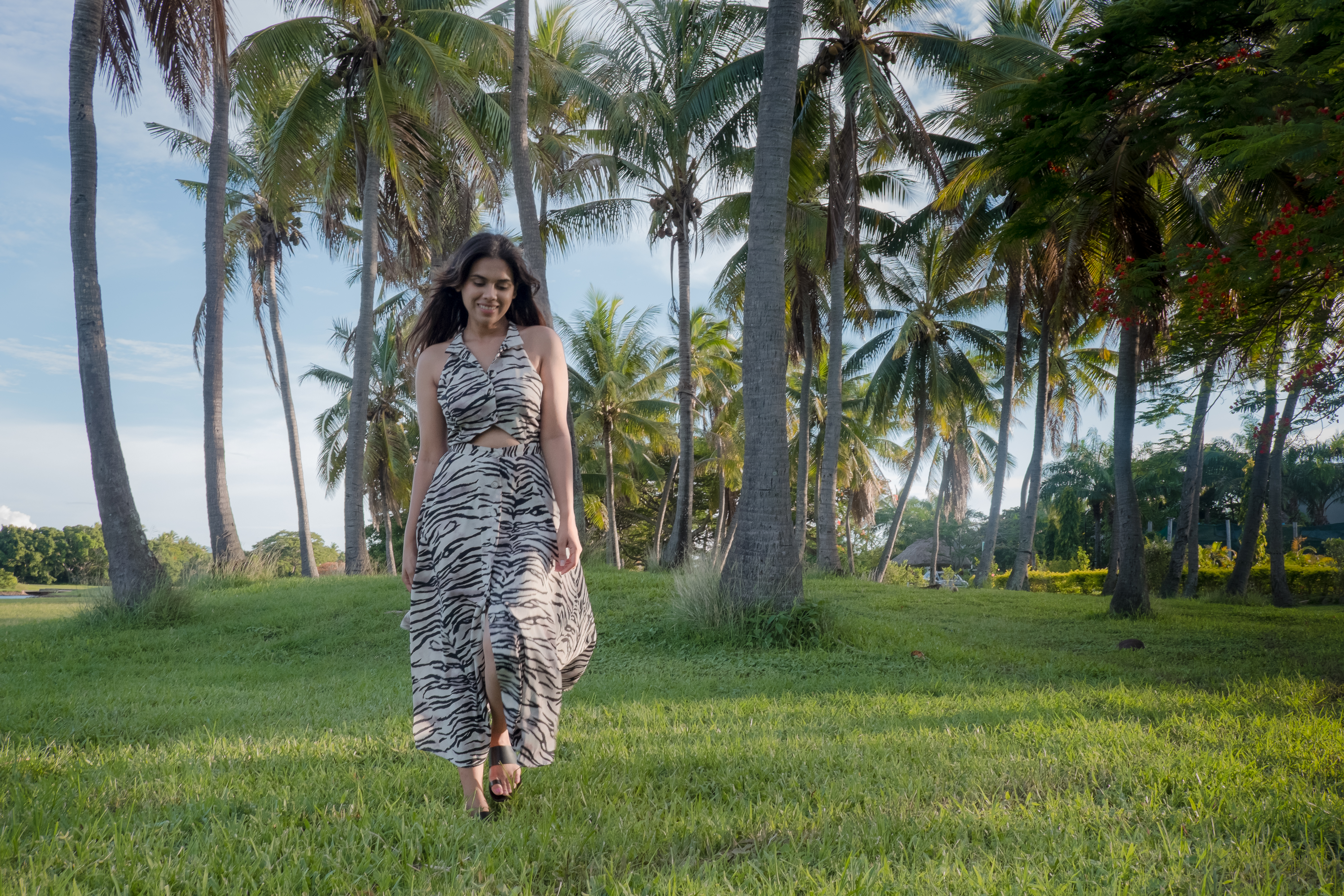











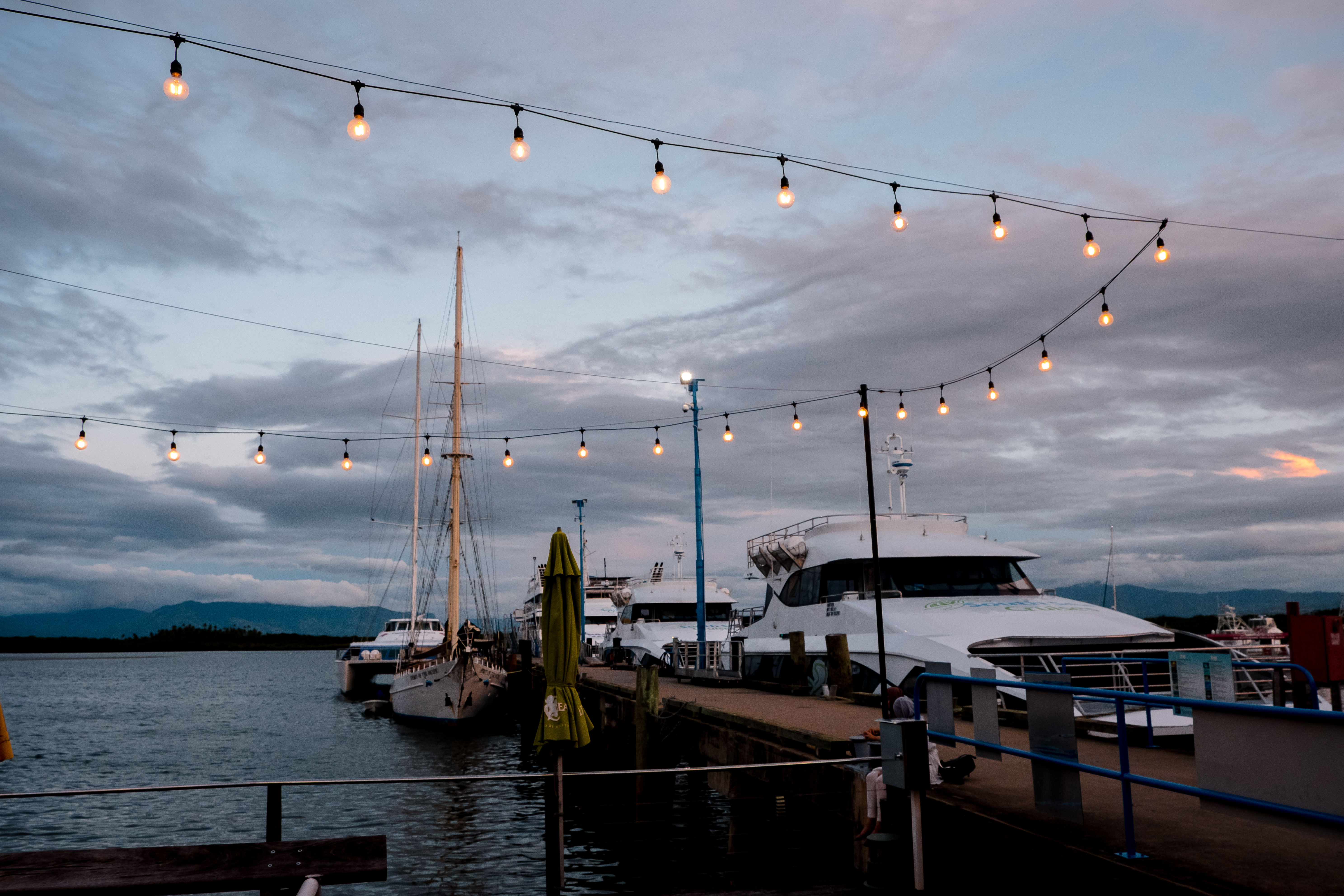












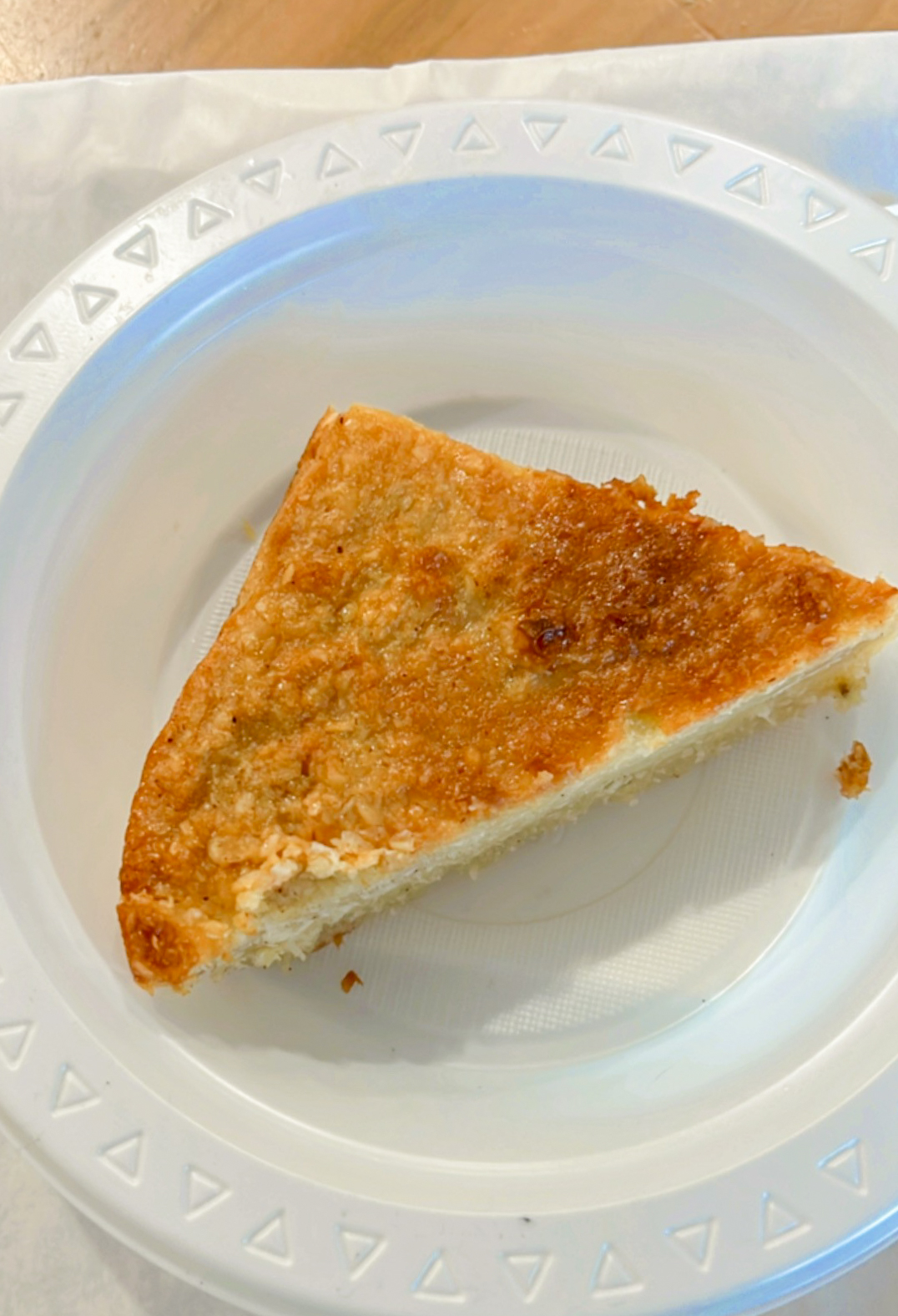














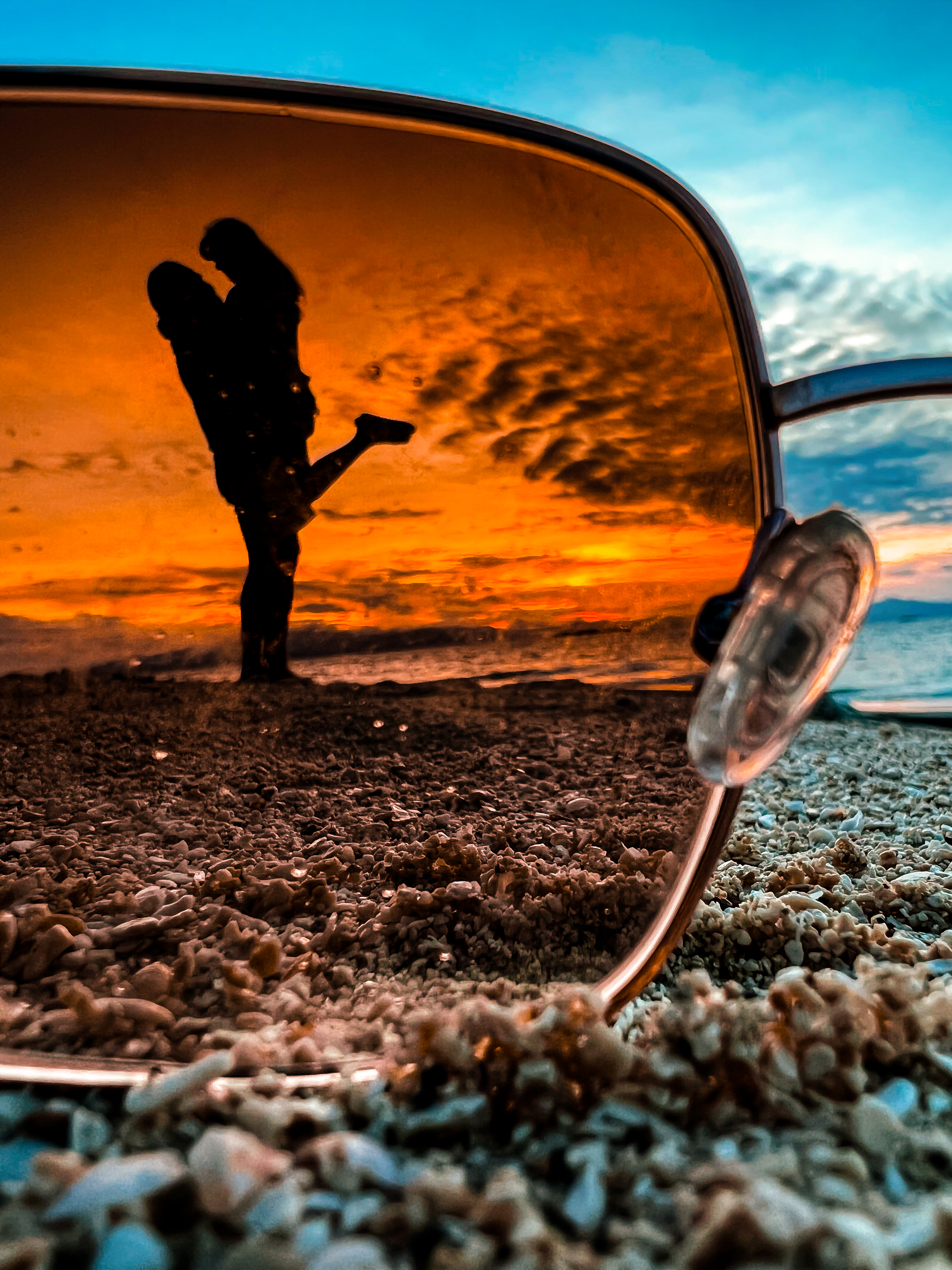

















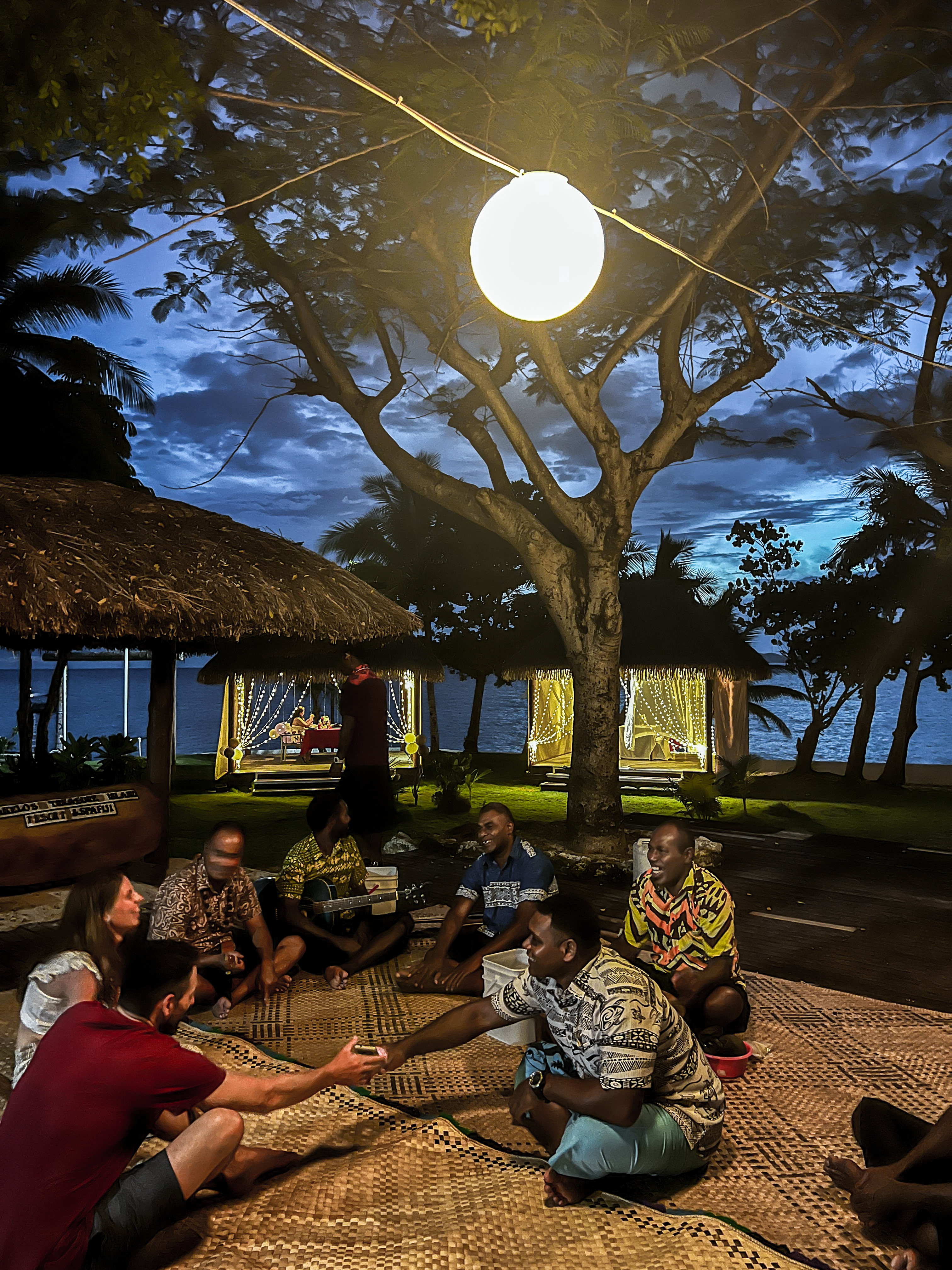

















0 comments